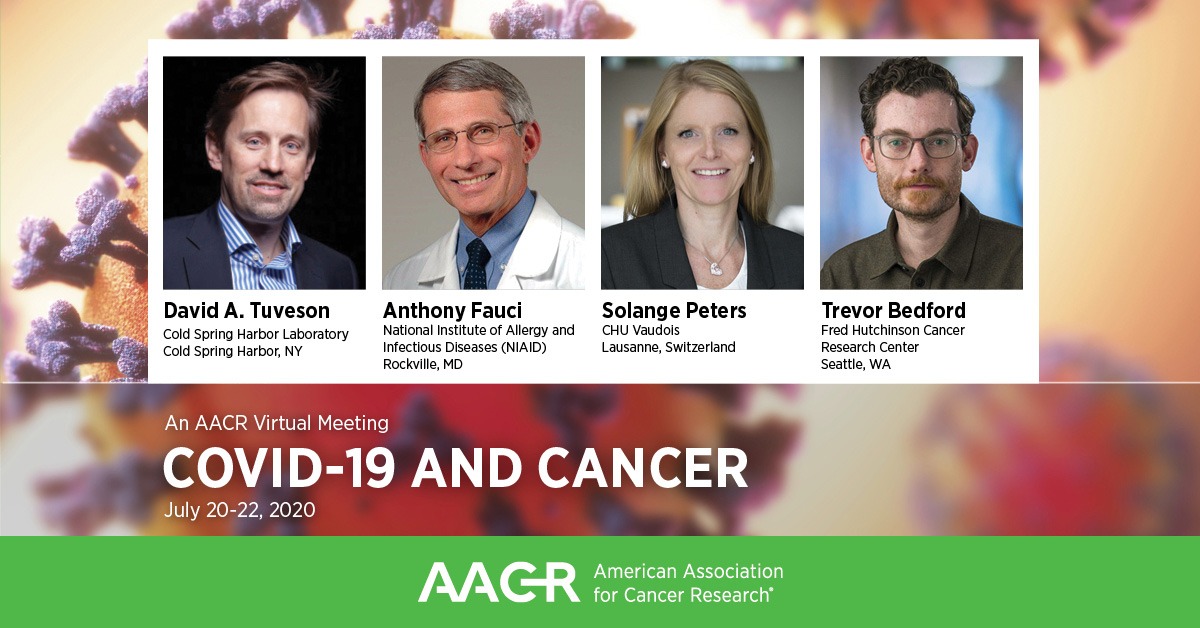This story is part of The Cancer Letter’s ongoing coverage of COVID-19’s impact on oncology. Our full coverage of SARS-CoV2 is available here.
A conference organized by the American Association for Cancer Research July 20-22 will bring together oncologists from academia, industry and government to identify ways for cancer researchers to inform studies of COVID-19.


It’s fascinating how this virus is spurring so much research so quickly. Because of their unique qualifications, many cancer researchers are now working effectively on the virus.
Antoni Ribas
“Our mission at AACR is to prevent and cure cancer for everyone, but we can only do that if we have this pandemic under control. If COVID-19 continues unabated, how can we do our job and make significant progress against cancer?” Antoni Ribas, AACR president and professor of medicine, surgery, molecular and medical pharmacology at the University of California Los Angeles, said to The Cancer Letter.
The meeting is split into 12 symposia and six forums. Speakers include NCI Director Ned Sharpless, who will speak about the challenge of bringing patients back to the clinic, and NCI Principal Deputy Director Douglas R. Lowy, who will speak about antibody testing.
The three keynote speakers are:
Anthony Fauci, director of the National Institute of Allergy and Infectious Diseases.
Trevor Bedford, associate professor in the Vaccine and Infectious Disease Division, associate professor of the Public Health Sciences Division, and associate professor of the Human Biology Division at Fred Hutchinson Cancer Research Center, and;
Solange Peters, head of the medical oncology service and chair of thoracic oncology in the Oncology Department at the Centre Hospitalier Universitaire Vaudois in Lausanne, Switzerland.
“We knew in March, when we had to close the research labs, and many clinical trials were halted, and patients stopped coming to the clinic—that unless we address the pandemic, we would not be able to continue to fight cancer in the same impactful way,” said Ribas, who is also director of the Tumor Immunology Program at Jonsson Comprehensive Cancer Center. “Now we know we have to address both diseases at the same time, and we have to adapt rapidly to the new situation. That’s why this meeting is so important.”
Next week’s conference is organized by the AACR COVID-19 and Cancer Task Force, building on earlier discussions at the AACR virtual annual meetings I and II, which took place in April and June. The annual meetings, which had a combined audience of about 100,000, were accessible at no cost (The Cancer Letter, May 1, 2020).
Fees for registration for the COVID-19 and Cancer meeting for the COVID-19 and Cancer meeting range between $299 and $599.
The 12 symposia at the COVID-19 and Cancer conference follow:
Symposium 1: Intersection of the biology of SARS-CoV-2 and cancer
Symposium 2: Effects of cancer immunotherapies on patients with COVID-19 (with and without cancer).
Symposium 3: COVID-19 vaccine development.
Symposium 4: Cancer drug repurposing to treat COVID-19.
Symposium 5: Cancer pathway biologies intersecting with COVID-19
Symposium 6: Continuity of cancer care.
Symposium 7: Effects of COVID-19 on cancer survivorship: impact on cancer patients and professionals.
Symposium 8: COVID-19 diagnostics development.
Symposium 9: Health inequities and disparities in the COVID-19 pandemic.
Symposium 10: Risk factors and comorbidities resulting in adverse outcomes for cancer patients with COVID-19.
Symposium 11: Cancer prevention and early detection during the COVID-19 pandemic.
Symposium 12: Epidemiology and registries of COVID-19 and cancer.
“It’s not only who we thought were the best invited speakers, but we also had a call for abstracts and invited the best to present. We know we’re getting the cutting edge of science in COVID and cancer,” Ribas said.
Organizers planned six forums for the July conference. In forums, researchers have less-structured conversations.
The forums are:
Forum 1: Regulatory and operational implications of cancer clinical trial changes during covid-19.
Forum 2: Telehealth.
Forum 3: How will we bring patients back to the clinic?
Forum 4: How cancer researchers are applying their talents to COVID-19 issues.
Forum 5: Public-private partnerships poised to address COVID-19.
Forum 6: Health disparities.
The AACR COVID and Cancer Task Force is comprised of epidemiologists and cancer experts involved with diagnostic testing, viral immunology, drug development and clinical technologies—and includes leaders from AACR, cancer centers, industry and the federal government.
“The AACR COVID-19 and Cancer Task Force spans the entire expertise of what’s needed to know about this coronavirus, about epidemiology, screening, testing, immunology, and healthcare disparities. There is also enormous interest in the work of medical oncologists and cancer researchers who are repurposing cancer drugs to attack COVID-19,” Ribas said.
Now we know we have to address both diseases at the same time, and we have to adapt rapidly to the new situation. That’s why this meeting is so important.
Antoni Ribas
“Getting testing for everyone is vitally important—why can’t we do 5 million COVID-19 tests a day?” Ribas said. “We should be able to do it. The science allows it. We do a large number of genetic tests for cancer, and we could do the same for the virus. We’re garnering the right expertise to help advance all aspects of COVID-19 and cancer science.”
The AACR reports on cancer disparities, and another on cancer progress, are expected to be released this fall. Its report on COVID-19 and cancer is expected to be published in spring 2021.
“It’s fascinating how this virus is spurring so much research so quickly. Because of their unique qualifications, many cancer researchers are now working effectively on the virus,” Ribas said. “We’re all together in tackling this challenge. We know that science will get us to the right place—we’re betting on science.”









